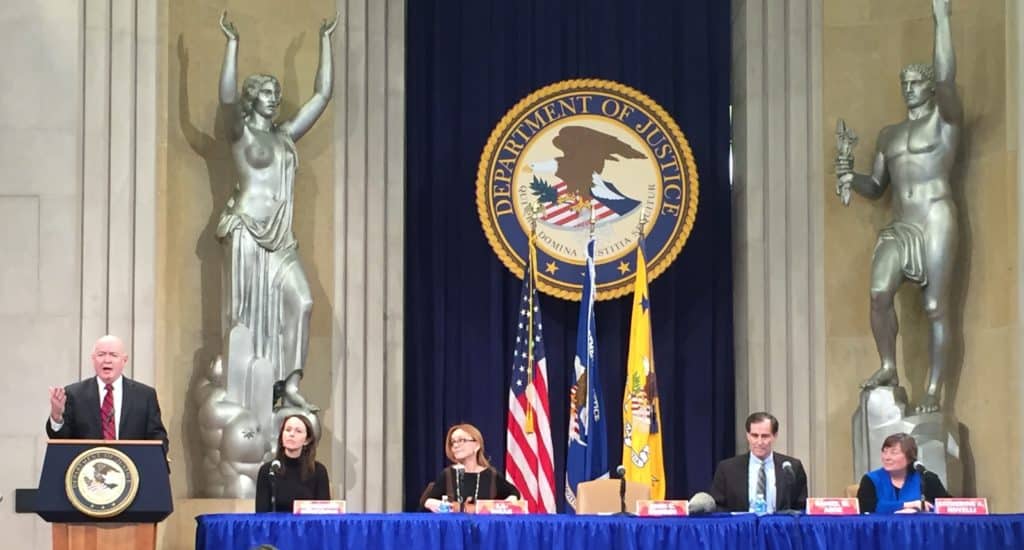Today, the Departments of Justice, State, and the Interior, co-hosted a panel discussion with the Presidential Task Force on Wildlife Trafficking to celebrate “World Wildlife Day.”
John C. Cruden, Assistant Attorney General for the Environment and Natural Resources Division, underscored the urgency of combating wildlife trafficking by reminding the audience, “If we don’t do better, we’re going to be telling our grandchildren what elephants and rhinoceroses used to look like.” It is this stark reality that reflects the magnitude of the international crisis in wildlife trafficking.
International wildlife trafficking occurs in clandestine spaces, which makes detection extremely hard for law enforcement agencies. J.A. Mills, author Blood of the Tiger, explained that many “tiger farms” are tucked away in remote areas of Northern China, near the Russian border, which make them difficult to penetrate. Without the help of insiders who come forward with information, it is very hard to combat illegal trafficking.
Unfortunately, “[wildlife trafficking] is a multibillion dollar international industry, with a low number of arrests and convictions.” In fact, “Rhino horn is more valuable by weight than gold or cocaine,” said Mr. Cruden. Traffickers see an opportunity for a large payout, with a low risk of getting caught.
These observations only bolster the need to effectively utilize whistleblowers in the wildlife trafficking arena—insider tips would make illegal trafficking more costly for wrongdoers; we need the help of whistleblowers to take down this lucrative industry. The panelists agreed:
“We are so dependent on others to bring information to our attention,” shared Mr. Cruden. As one example, Cruden cited how international whistleblowers have reported illegal dumping at sea before their vessels arrive in the US, facilitating arrests of the wrongdoers. “Whistleblowers are so important to us, [and we need to be] honoring and protecting those individuals, and compensating those individuals…depending on the statute,” Cruden affirmed.
Fortunately, legal authority already exists for a comprehensive wildlife whistleblower program, which would pay awards to whistleblowers who furnish information that leads to a successful enforcement action against traffickers. Over forty laws covering a comprehensive range of wildlife protections contain award provisions.
The National Whistleblower Center was recently selected as one of 16 Prize Winners in USAID’s Crime Tech Challenge. NWC’s Prize Winning solution, the Secure Internet Wildlife Crime Reporting System, is a secure online platform, a one-stop shop via which whistleblowers can safely and anonymously file reports of wildlife crimes and gain useful information about how wildlife whistleblower laws work.
It is time to protect whistleblowers and incentivize their involvement in combating wildlife crimes. Click here to educate yourself on the laws and the need to protect wildlife whistleblowers. Click here to send a message to government agencies to tell them that wildlife whistleblowers need to be protected.
